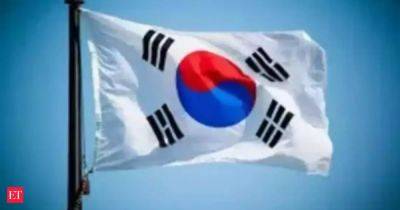The Bank of Japan ends its negative interest rate policy, opting for its first hike in 17 years
Japan's central bank has raised its benchmark interest rate for the first time in 17 years, ending a longstanding policy of negative rates meant to boost the economy
TOKYO — Japan’s central bank raised its benchmark interest rate Tuesday for the first time in 17 years, ending a longstanding policy of negative rates meant to boost the economy.
The Bank of Japan's lending rate for overnight borrowing by banks was raised to a range of 0 to 0.1% from minus 0.1% at a policy meeting that confirmed expectations of a shift away from ultra-lax monetary policy.
It was the first rate hike since February 2007. The negative interest rate policy, combined with other measures to inject money into the economy and keep borrowing costs low, “have fulfilled their roles,” Bank of Japan Gov. Kazuo Ueda told reporters.
The bank has an inflation target of 2% that it used as a benchmark for whether Japan had finally escaped deflationary tendencies. But it had remained cautious about “normalizing” monetary policy, or ending negative borrowing rates, even after data showed inflation at about that rate in recent months.
Ueda said there was “a positive cycle” of a gradual rise of wages and prices, while stressing that monetary policy will remain easy for some time.
Although private sector banks and other financial organizations will make their own decisions about rates, he said did not foresee any drastic rises. The central bank will watch for any big moves in rates, which would cause confusion, he added.
“We made the decision because we foresaw stable and continuous 2% inflation,” he added.
Another factor supporting the shift: Japanese companies have announced relatively robust wage hikes for this year's round of negotiations with trade
Read more on abcnews.go.com
























